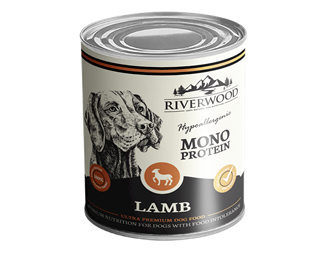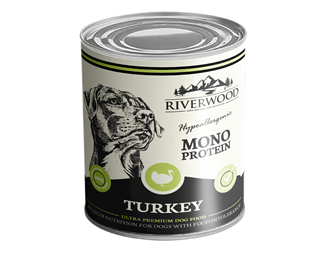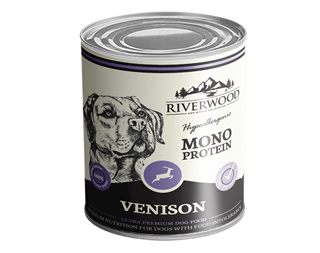Dog with diarrhea: causes and golden tips
Every dog has diarrhea from time to time. It is not the most appetizing subject to discuss, but since many dogs suffer from it from time to time, it is certainly an important topic: talk poop!
A dog's stool should be brown in color, compact, shaped like an elongated cylinder and easy to pick up. When the stool is thin or watery, it is called diarrhea. What can cause a dog to get diarrhea? What can I do if my dog has diarrhea? Read our golden tips for a dog with diarrhea.

A dog may suffer from acute diarrhea. In this case, a dog suffers from diarrhea for only one to a few days. When it persists longer we speak of chronic diarrhea.
Causes of diarrhea in a dog
There are several causes by which a dog can get diarrhea. We obviously cannot discuss them all, but the most common causes are listed below:
Your dog has diarrhea due to new food. A dog's digestive tract has to "get used" to new food. The intestinal flora, bacteria in the gut, must adapt to digest it optimally. During this period, a dog may suffer from thinner stools.
For this reason, it is advised to gradually switch a dog to a new food (depending on the diet your four-legged friend is on) to reduce the chances of diarrhea. In our article - Switching to different dog food, how do you do it? - we give our switching advice.
Your dog ate something wrong. We all know it. While walking, you suddenly hear or see your dog chewing extensively or you see him hurriedly working something down. This could be garbage that ended up on the street but it could also be spoiled food, for example. Both can result in diarrhea symptoms. Dogs who often eat something off the street may suffer from diarrhea more often than dogs who do not.
A parasitic infection. This can include worms, such as tapeworms or roundworms. Be careful: if your dog suffers from worms, you can also become infected with them when you come into contact with your dog's feces!
A viral infection. A viral infection is spread from dog to dog through saliva or through feces. When a dog suffers from a viral infection, the animal often suffers from diarrhea. However, a dog will then also suffer from other symptoms, such as increased body temperature, lethargy or vomiting. An example of a viral infection is IBD (Inflammatory Bowel Disease).
Your dog has Giardia. Giardia is a parasitic infection common in puppies or in older, weaker animals. In puppies, the immune system does not yet work optimally, so they are more likely to get Giardia than adult dogs whose immune systems work well. When a puppy suffers from Giardia, its stool is slimy and may contain blood. In addition, the puppy may be nauseated and may also vomit. Do you suspect your puppy is suffering from Giardia? If so, contact your veterinarian immediately! Be careful: Giardia is also contagious to humans.
Continue reading under the block
Bekijk hieronder onze licht verteerbare voedingen
What to do when a dog has diarrhea?
- Make sure that your dog always continues to drink sufficiently when he suffers from diarrhea. Dogs lose a lot of fluid and salt in this case. Fluids must be replenished to prevent a dog from dehydrating.
- At diarrhea that is over after one to a few days, or at mild diarrhea you do not need to take further steps. In this case, a dog is still active and eats and drinks sufficiently.
- When your dog suffers longer from diarrhea you can let the animal fast, always consult with your veterinarian if this is an option. It is important that in this case your dog is still active and that he does not suffer from other health problems. You can let your dog fast for 12 to 24 hours, just give the animal small bits of water in between so he does not become dehydrated. If you think that a period of 12 to 24 hours is too long for your four-legged friend, you can also let the animal fast for 6 to 12 hours. NOTE: puppies cannot be fasted and older/ senior dogs are also not recommended. If you have a small breed dog, then fasting is not recommended either. These dogs often have insufficient reserves to cope with fasting.
- Give your dog easily digestible food when the animal suffers from diarrhea, such as a special easily digestible kibble or cooked chicken. Divide the amount of food into several servings per day, at least 4. Doing this reduces the load on the digestive tract.
- If your dog has prolonged and frequent diarrhea, or also has other symptoms such as vomiting, blood in the stool, dehydration symptoms and/or fever, it is important to contact the veterinarian. Also, clean up the stool quickly and properly in case your dog is suffering from an infection that is contagious
Of course, it is also important to know what your four-legged friend can and cannot eat. Earlier we wrote an article about which fruits and vegetables your dog can and cannot eat. If you want to read it, click here!








